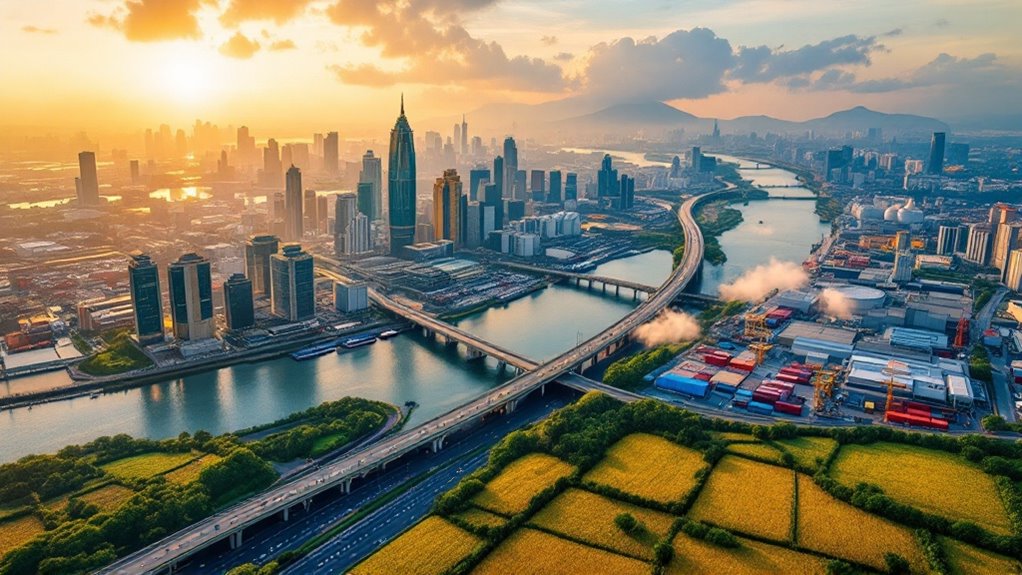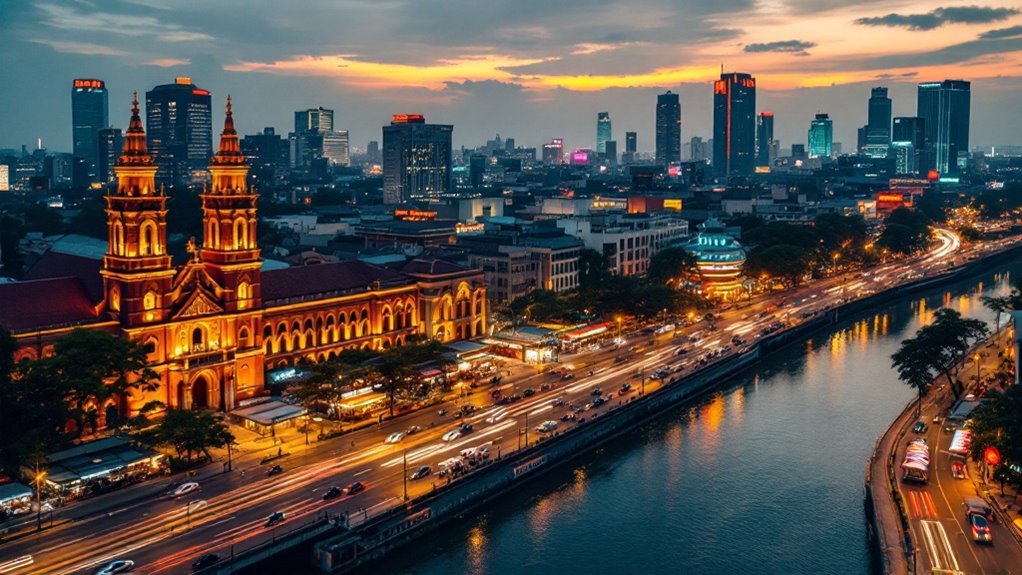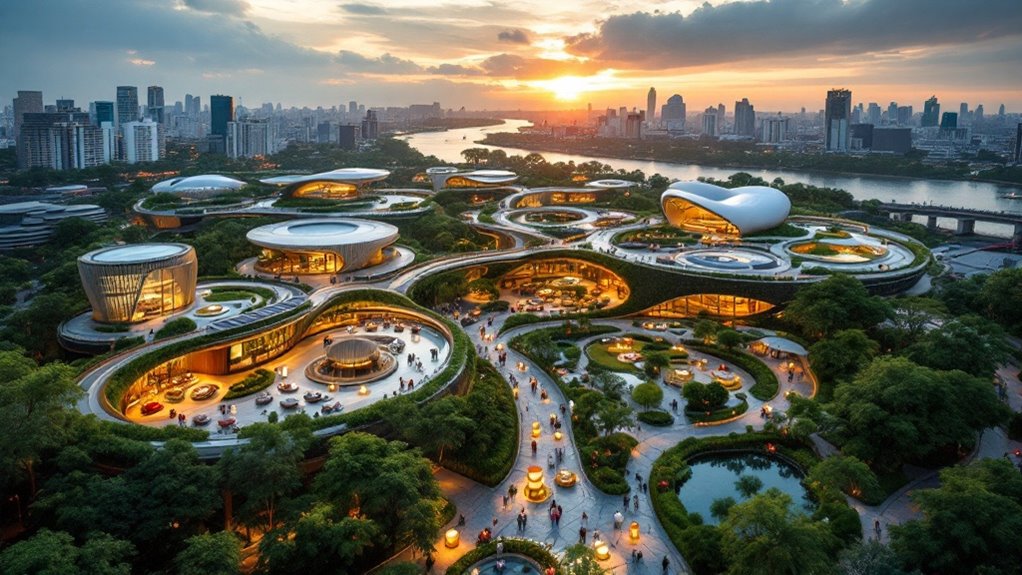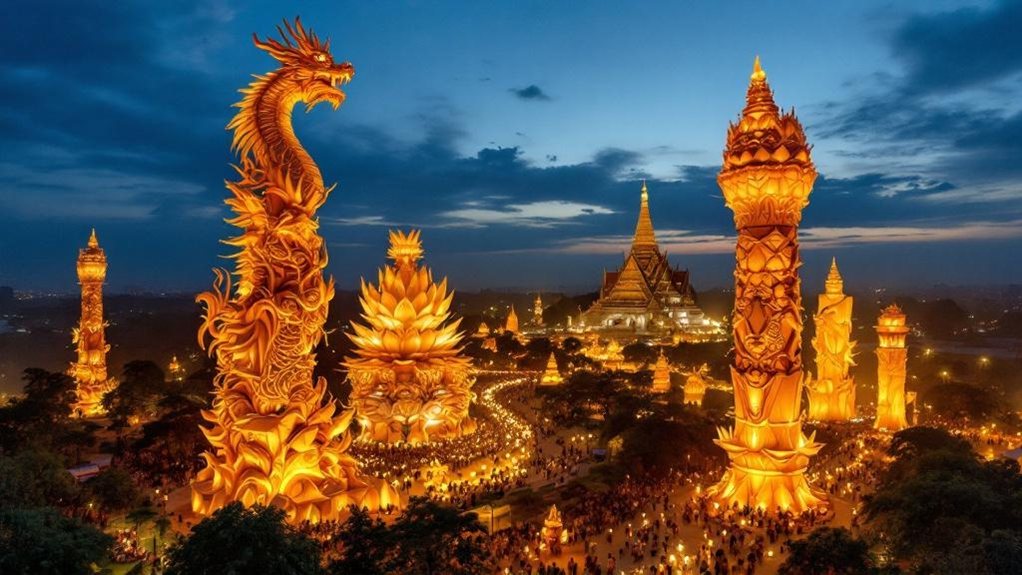Chinese tourists remain wary about visiting Thailand, citing persistent safety concerns following incidents like the 2018 Phuket boat disaster, ongoing scams targeting Chinese nationals, and increased reports of human trafficking near the Myanmar border. Economic pressures in China, including a weaker yuan and US tariffs, reduce travel budgets, while destinations like Japan and Vietnam offer perceived safer alternatives. Thailand’s limited crisis response and budget for marketing hamper recovery efforts, explaining the sharp decline in Chinese arrivals. Further details explore these ongoing challenges.
Why are Chinese tourists increasingly hesitant to visit Thailand? Several interrelated factors have contributed to a notable decline in Chinese arrivals, despite Thailand’s efforts to revive its tourism sector.
Safety concerns remain a central issue, rooted in high-profile incidents such as the 2018 Phuket boat sinking that caused the deaths of 47 Chinese nationals. This tragedy, along with more recent criminal activities, such as the “Xing Xing” call centre scams targeting Chinese citizens and reports of tourists falling victim to zero-dollar tour operators, has eroded confidence. In recent surveys, only 19% of Chinese respondents view Thailand as safe, highlighting the depth of these safety concerns. In the first quarter of 2025, Thailand received 1.33 million Chinese tourists, representing a 24% year-on-year decline.
High-profile tragedies and scams targeting Chinese tourists have severely undermined confidence in Thailand’s safety as a travel destination.
Fears regarding human trafficking, especially involving cross-border scam centers in the Myanmar-Thailand border region, have further amplified negative perceptions.
Economic headwinds in China also play a significant role in shaping travel decisions. Ongoing US tariff pressures, a weakening yuan, and an economic slowdown have constrained disposable incomes, reducing the ability of many Chinese to travel abroad.
Simultaneously, the Chinese government is actively promoting domestic tourism through major infrastructure investments and new visa-free transit policies, incentivizing citizens to explore local destinations instead of traveling overseas.
Thailand faces stiff competition from regional destinations such as Japan and Vietnam, which are perceived as safer and have implemented aggressive marketing strategies.
Thailand’s reputation as a budget-friendly destination is now seen as less appealing compared to premium alternatives, and its limited high-end offerings may not attract the growing segment of quality-focused travelers.
Marketing efforts to counteract negative narratives on Chinese social media have been hampered by budget constraints and slow crisis response, leading to an ongoing “Thailand is unsafe” trend on platforms like Weibo.
Tourism data reflect these challenges, with Chinese arrivals dropping to 5,833 per day in April 2025, down from a peak of 100,000, and a 17% year-over-year decline in the first quarter.
Projections for 2025 have been revised downward to 4.2–5.5 million visitors from 6.7 million in 2024. Although policies such as visa-free entry remain in place, modest infrastructure upgrades and increased security measures have not yet restored confidence, and inter-agency coordination issues persist in addressing these challenges.









